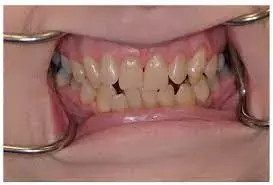- Home
- Medical news & Guidelines
- Anesthesiology
- Cardiology and CTVS
- Critical Care
- Dentistry
- Dermatology
- Diabetes and Endocrinology
- ENT
- Gastroenterology
- Medicine
- Nephrology
- Neurology
- Obstretics-Gynaecology
- Oncology
- Ophthalmology
- Orthopaedics
- Pediatrics-Neonatology
- Psychiatry
- Pulmonology
- Radiology
- Surgery
- Urology
- Laboratory Medicine
- Diet
- Nursing
- Paramedical
- Physiotherapy
- Health news
- Fact Check
- Bone Health Fact Check
- Brain Health Fact Check
- Cancer Related Fact Check
- Child Care Fact Check
- Dental and oral health fact check
- Diabetes and metabolic health fact check
- Diet and Nutrition Fact Check
- Eye and ENT Care Fact Check
- Fitness fact check
- Gut health fact check
- Heart health fact check
- Kidney health fact check
- Medical education fact check
- Men's health fact check
- Respiratory fact check
- Skin and hair care fact check
- Vaccine and Immunization fact check
- Women's health fact check
- AYUSH
- State News
- Andaman and Nicobar Islands
- Andhra Pradesh
- Arunachal Pradesh
- Assam
- Bihar
- Chandigarh
- Chattisgarh
- Dadra and Nagar Haveli
- Daman and Diu
- Delhi
- Goa
- Gujarat
- Haryana
- Himachal Pradesh
- Jammu & Kashmir
- Jharkhand
- Karnataka
- Kerala
- Ladakh
- Lakshadweep
- Madhya Pradesh
- Maharashtra
- Manipur
- Meghalaya
- Mizoram
- Nagaland
- Odisha
- Puducherry
- Punjab
- Rajasthan
- Sikkim
- Tamil Nadu
- Telangana
- Tripura
- Uttar Pradesh
- Uttrakhand
- West Bengal
- Medical Education
- Industry
Use of powered toothbrush improves oral health parameters among individuals with mild cognitive impairment

Use of powered toothbrush improves oral health parameters among individuals with mild cognitive impairment suggests a new study published in the Gerodontology
The aim of the study is to investigate whether the use of a powered toothbrush could maintain oral health by reducing the dental plaque (PI), bleeding on probing (BOP), and periodontal pocket depth (PPD) ≥4 mm in a group of individuals with MCI and also if changes in oral health affect various aspects of quality of life.
People with cognitive impairment tend to have poor oral hygiene and poorer Quality of life. In the present study, the participants were asked to use a powered toothbrush for at least 2 min morning and evening and no restrictions were given against the use of other oral care products. The participant survey conducted at each examination demonstrated that 61.2% of participants at baseline claimed to have experience of using a powered toothbrush, 95.4% at 6 months and 95% after 12 months. At the same time, the use of manual toothbrushes dropped from 73.3% to 44.7% from baseline to the 12-month check-up. This shows that several participants continue to use the manual toothbrush in parallel with the powered toothbrush, but that there is a shift towards increased use of the powered toothbrush. Removal of dental biofilm is essential for maintaining good oral health. We investigated whether using a powered toothbrush reduces the presence of dental plaque, bleeding on probing and periodontal pockets ≥4 mm in a group of older individuals with mild cognitive impairment.
Two hundred and thirteen individuals with the mean age of 75.3 years living without official home care and with a Mini-Mental State Examination (MMSE) score between 20 and 28 and a history of memory problems in the previous six months were recruited from the Swedish site of a multicenter project, Support Monitoring And Reminder Technology for Mild Dementia (SMART4MD) and screened for the study. The individuals received a powered toothbrush and thorough instructions on how to use it. Clinical oral examinations and MMSE tests were conducted at baseline, 6 and 12 months.
Results
One hundred seventy participants, 36.5% women and 63.5% men, completed a 12-month follow-up. The use of a powered toothbrush resulted, for the entire group, in a significant decrease in plaque index from 41% at baseline to 31.5% after 12 months (P < .000). Within the same time frame, the values for bleeding on probing changed from 15.1% to 9.9% (P < .000) and the percentage of probing pocket depths ≥4 mm from 11.5% to 8.2% (P < .004). The observed improvements in the Oral Health Impact Profile 14 correlate with the clinical improvements of oral health.
The use of a powered toothbrush was associated with a reduction of PI, BOP and PPD over 12 months even among individuals with low or declining MMSE score. An adequately used powered toothbrush maintain factors that affect oral health and oral health-related Quality of Life in people with mild cognitive impairment.
Reference:
Flyborg, J, Renvert, S, Sanmartin Berglund, J, Anderberg, P. Use of a powered toothbrush to improve oral health in individuals with mild cognitive impairment. Gerodontology. 2023; 40: 74– 82. doi:10.1111/ger.12619
Dr. Shravani Dali has completed her BDS from Pravara institute of medical sciences, loni. Following which she extensively worked in the healthcare sector for 2+ years. She has been actively involved in writing blogs in field of health and wellness. Currently she is pursuing her Masters of public health-health administration from Tata institute of social sciences. She can be contacted at editorial@medicaldialogues.in.
Dr Kamal Kant Kohli-MBBS, DTCD- a chest specialist with more than 30 years of practice and a flair for writing clinical articles, Dr Kamal Kant Kohli joined Medical Dialogues as a Chief Editor of Medical News. Besides writing articles, as an editor, he proofreads and verifies all the medical content published on Medical Dialogues including those coming from journals, studies,medical conferences,guidelines etc. Email: drkohli@medicaldialogues.in. Contact no. 011-43720751


